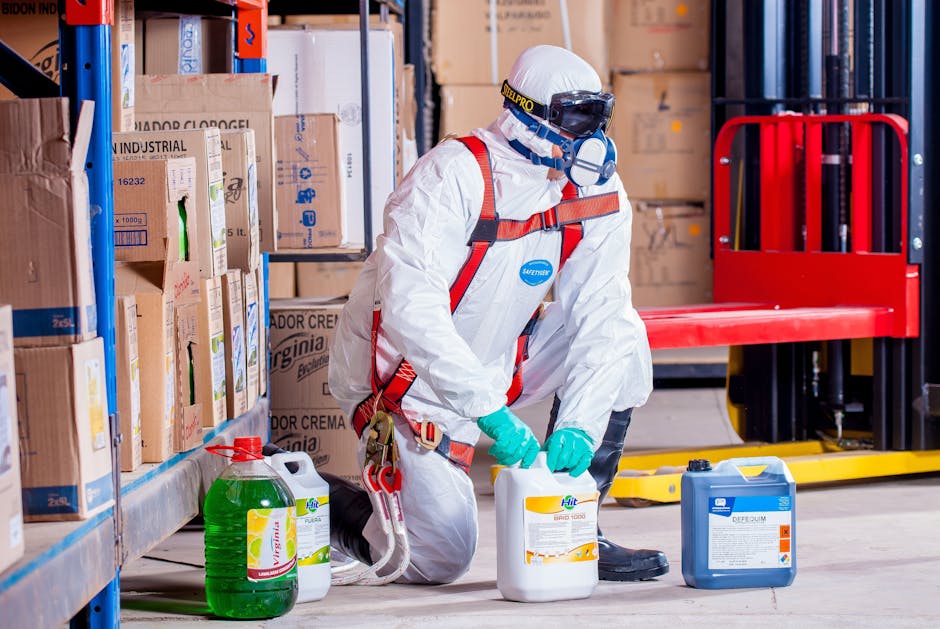Why People Think Are A Good IdeaWhy People Think Are A Good Idea
 The Key Role of Professional Food Plant Sanitation Services in Ensuring Food Safety
The Key Role of Professional Food Plant Sanitation Services in Ensuring Food Safety
In the realm of food production, the safety and quality of products are of utmost importance. This responsibility falls heavily on the shoulders of food plant owners and managers. One crucial aspect of maintaining these standards is implementing professional food plant sanitation services. Let’s delve into the significance and advantages of such services.
Upholding Hygiene Standards for Food Safety
Maintaining high levels of cleanliness in a food plant is non-negotiable. Professional sanitation services ensure that all equipment, surfaces, and production areas are thoroughly cleaned and sanitized. This reduces the risk of contamination and helps prevent the spread of foodborne illnesses.
Compliance with Regulations and Safeguarding Public Health
Regulatory bodies impose strict guidelines on food production facilities to safeguard public health. Professional sanitation services help food plants adhere to these regulations, avoiding fines and legal repercussions. Compliance instills confidence in consumers, reassuring them that the products they purchase meet safety standards.
Preservation of Product Quality and Shelf Life
Effective sanitation practices not only promote food safety but also extend the shelf life of products. By eliminating bacteria and pathogens, the risk of spoilage decreases, preserving the freshness and quality of food items. This enhances customer satisfaction and minimizes waste, benefiting both the business and the environment.
Prevention of Cross-Contamination for Safe Food Processing
Cross-contamination poses a significant risk in food processing environments. Professional sanitation services employ techniques to prevent the transfer of harmful microorganisms between surfaces, equipment, and personnel. This meticulous approach mitigates the chances of contamination during production, packaging, and storage processes.
Protection of Brand Reputation and Consumer Trust
A single instance of contamination or foodborne illness can tarnish a brand’s reputation irreparably. Professional sanitation services help safeguard brand integrity by demonstrating a commitment to food safety and hygiene. A positive reputation fosters consumer trust and loyalty, driving sustained business growth.
Cost-Effectiveness and Long-Term Benefits
While investing in professional sanitation services incurs expenses, it ultimately proves cost-effective in the long run. Preventing contamination-related recalls, lawsuits, and damage to brand reputation far outweighs the initial investment. Moreover, efficient sanitation practices optimize production processes, reducing downtime and maximizing profitability.
Expertise, Specialized Equipment, and Superior Results
Professional sanitation services bring expertise and specialized equipment to the table. Trained personnel understand the nuances of food plant sanitation, employing industry best practices to deliver superior results. Cutting-edge technology and tools ensure thorough cleaning and disinfection, surpassing what can be achieved through in-house efforts.
Adaptability to Unique Requirements and Tailored Solutions
Every food plant has its own set of challenges and requirements. Professional sanitation services offer tailored solutions to address specific needs effectively. Whether dealing with sensitive equipment or adhering to niche industry standards, experienced providers can accommodate diverse demands with precision and flexibility.
Enhancing Employee Morale, Productivity, and Workflow Efficiency
A clean and hygienic work environment fosters employee satisfaction and productivity. Professional food plant sanitation services contribute to a healthier workplace, reducing the risk of illness among staff members. When employees feel safe and valued, morale improves, leading to higher levels of engagement and performance. Additionally, a well-maintained facility enhances workflow efficiency, minimizing disruptions and maximizing output.
Sustainability, Environmental Responsibility, and Modern Consumer Preferences
Professional sanitation services prioritize eco-friendly practices, promoting sustainability and environmental responsibility. By utilizing green cleaning products and efficient water usage techniques, these services minimize their carbon footprint. Furthermore, proper waste management practices reduce pollution and promote recycling, contributing to a healthier planet. Embracing sustainable sanitation practices aligns with modern consumer preferences and regulatory trends, positioning food plants as responsible stewards of the environment.
Professional food plant sanitation services play a pivotal role in ensuring food safety, regulatory compliance, and brand reputation. By upholding hygiene standards, preventing contamination, preserving product quality, and promoting sustainability, these services contribute to the overall success and sustainability of food production operations.
 Guidelines to Consider When Choosing a Chiropractor
Guidelines to Consider When Choosing a Chiropractor

